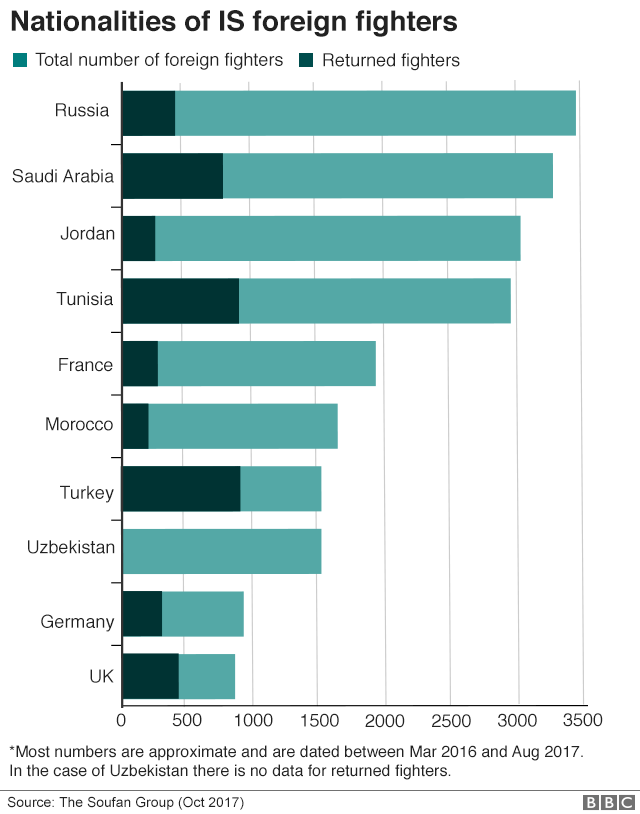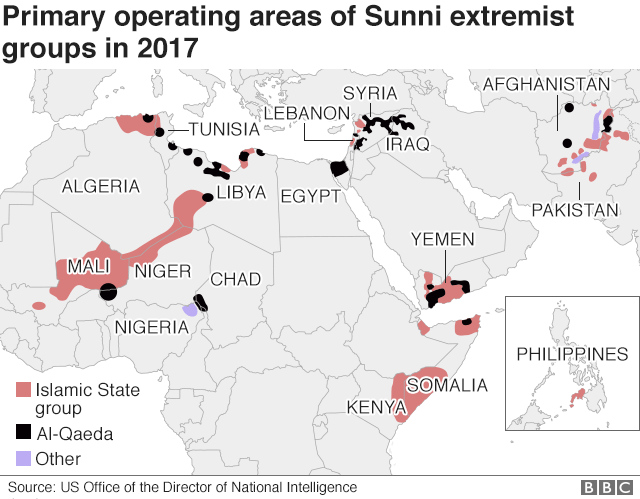Islamic State Recruiters In Our Midst
"This hearing is not a trial [I only do] very limited weighing of the evidence. I do not measure whether the evidence would withstand a more rigorous analysis as to its reliability."
"Even if the evidence of ‘John Doe’ and Mrs. McCain alone could and should be rejected, I find the evidence as a whole, including the Western Union money transfer records, could be used by a properly instructed jury to conclude that the mental element of the offence had been proven."
"I am satisfied that the test ... is met. And I am satisfied that Mr. Abdullahi is the person sought by the United States."
"I therefore order his committal into custody to await surrender."
Court of Queen's Bench Justice John Little, Edmonton, Alberta
 |
| A Court of Queen's Bench Justice ruled Thursday, May 31, 2018, that Abdullahi Ahmed Abdullahi, 33, will be sent to the United States to stand trial on charges of providing material support for terrorists and conspiracy to provide material support for terrorists. |
"[A witnesses relied on by the United States was in] extreme jeopardy [himself a target of an FBI investigation, providing evidence against Abdullahi to shelter himself.] I respectfully submit this is self-serving."There are times when the wheels of intelligence gathering and potential justice outcome intersect. And those are the times that lawyers step forward to use their familiarity with Western legal protections guaranteed to those accused of wrong-doing, even of the most egregiously unforgivable variety, to cast doubt on the guilt of their clients. Often enough these skilled interlocutors manipulate protective legalities sufficiently subtly to gain an outcome favourable to their client casting an aura of uncertainty over evidence obtained through witness declaration.
"This is double hearsay. I know of no case where that would be allowed in this country."
"I don't think it would be allowed in the U.S. either."
Akram Attia, lawyer for the defence
If enough doubt over the veracity of a witness's skill at creative interpretation can be brought to bear to nullify testimony the possibility that charges against a miscreant can be set aside by judicial authority agreeing that a cloud of self-serving deliberate misidentification leading to suggest that an innocent man is guilty as charged succeeds in manipulating a system where objectivity in determining an outcome is not always guaranteed. In the instance of terrorist enabler Abdullahi Ahmed Abdullahi a court in the United States will have the opportunity to judge him innocent or guilty.
The Edmonton court justice was not persuaded by the deft manoeuvrings of the 33-year-old man's lawyer, disputing that his client was the man to be charged with providing material support for terrorist and conspiracy to provide material support for terrorists. The U.S. request for extradition was honoured because the presiding judge managed to find agreement that the offence the defendant has been accused of is regarded as a crime in Canada, as well. As he stated, a jury that has been reasonably-instructed could determine the guilt of the accused, from the evidence.

Evidence that appears fairly solid in fact; fingerprint analysis that has identified Abdullahi's palm print found on the display counter of a jewelry store, which he and colleagues set out to rob to gain profit by the illegal sale of pilfered jewellery to benefit the sterling Islamist work that Islamic State had engaged upon. More evidence, in that one of his own cousins identified him in a surveillance video. Partial evidence the U.S. case will produce, including the testimony of a co-conspirator that Abdullahi provided money to ISIS fighters.
Another witness prepared to testify that she overheard a conversation where Abdullahi informed her husband he planned to use Western Union to send money from that jewellery store robbery, which along with records from Western Union and Internet service provider records highlighting certain culpable emails corroborate the charges. The accused has been held in custody since September of 2017 when he was arrested in Fort McMurray, Alberta.
Documents unsealed by a southern California federal court in January reveal that Abdullahi was born in Somalia, spent time in Minneapolis and San Diego and eventually travelled to Canada where he became a naturalized Canadian citizen. The American grand-jury charge states that Abdullahi provided funding to other men between August 2013 and November 2014 to enable them to travel to Syria where they planned to join Islamic State. Of the five men, one was a friend, the other four his cousins. All five of whom fought in Syria, all five of whom died in Syria, attested to by court documents.
Abdullahi -- the Islamic State devotee, recruiter and financier -- and two other men face criminal charges in Alberta provincial court relating to the 2014 Edmonton jewellery store heist whose purpose was to gain funds to be provided to "co-conspirators" in Syria. Draft emails saved on an account provided further evidence of Abdullahi's actions where he and others communicated with the use of coded names and phrases for updates on Islamic State actions. The account, to which others had access, served as well as a recruiting tool and through which new members would have their travel expenses funded.
No way exists, according to Abdullahi's attorney, to authenticate when the emails were written and who was responsible for writing them. Contending as well that the United States failed to disclose sufficient proof meeting the threshold of ordering extradition. Perhaps an extension could be made, proffering the possibility that lawyer Akram Attia might also be under suspicion of giving aid and comfort to the enemies of Western civilization...?

Labels: Infiltrators, Islamic State, Islamists, Jihad, United States Canada
0 Comments:
Post a Comment
<< Home